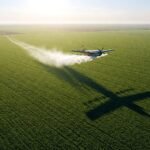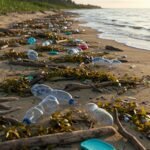A unique experience
The São Paulo School of Advanced Science on Emerging Pollutants, which will take place from September 2, 2025, to September 13, 2025, is extremely important for addressing contemporary environmental challenges. This international school brings together researchers and young students for 12 days to explore the multifaceted world of Emerging Pollutants.
The ESPCA on Emerging Pollutants was designed as an intensive theoretical and practical course aimed at contributing to the training of graduate students and postdoctoral researchers from various fields of knowledge. It seeks to develop and deepen technical expertise while broadening participants’ perspectives to foster the multi- and interdisciplinary approaches necessary for this complex topic.











